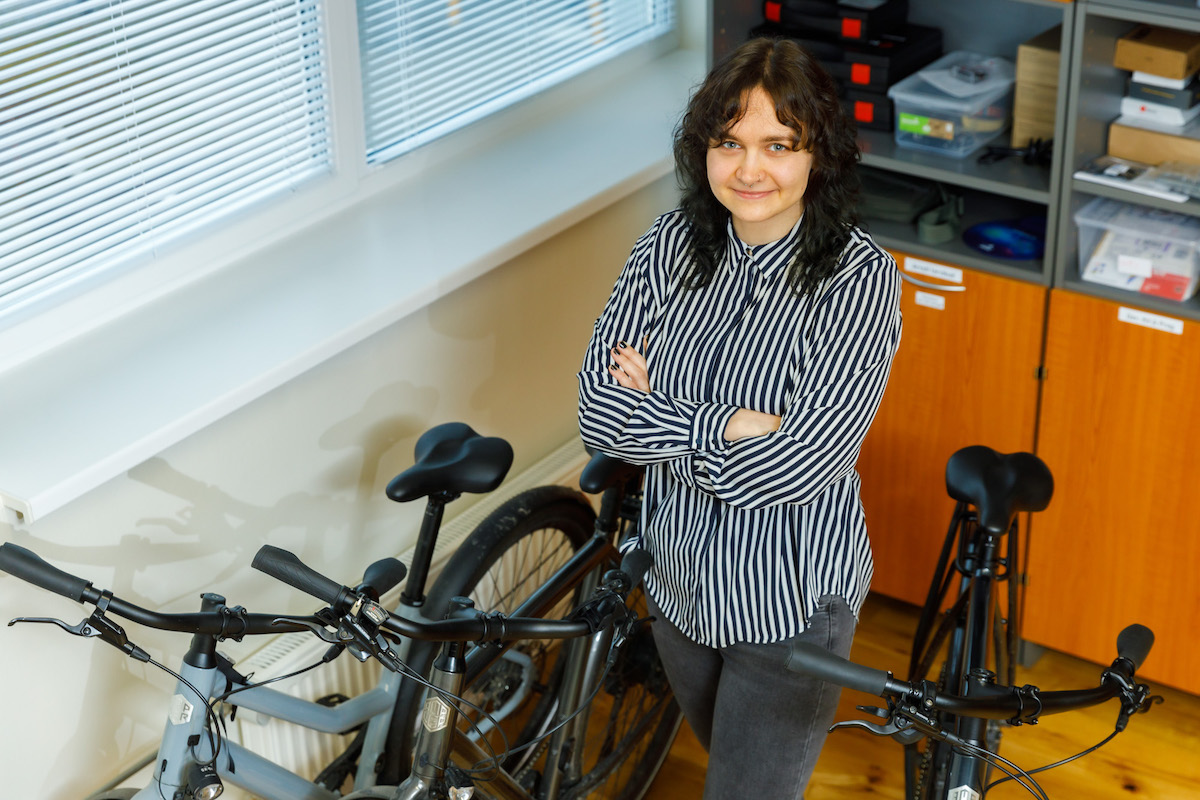Carmen Isop is a project manager at Krakul. She graduated from TalTech with a degree in electronics and telecommunications and completed a Master’s in system design at Chalmers University of Technology in Sweden. Carmen believes that female engineers bring a more diverse perspective to development companies, which makes electronic solutions more accessible and usable for women.
What are your duties?
My main task is to communicate with customers to find out exactly what they want and then, after discussing it with the engineers, propose the best solution for them. I also plan the time required for projects, ensure the plan is adhered to, and keep the client informed of the situation during the project.
What does your working day look like?
Working days vary greatly. There are days when there are various meetings with clients and potential clients or meetings with team leaders and engineers to plan the work or review the results so far. At the same time, there are also days when the focus is on research because, as a project manager, I must be aware of how the solutions we offer the client work. I always try to help find solutions to problems that arise.
What is the most satisfying thing about your job?
The most motivating is when customers and engineers are satisfied at the end of the day, i.e., the customers get the solution they want, and the engineers have mostly been able to do what they like. My most important goal is to be the person who reduces the amount of customer interaction and sometimes long meetings in the work of engineers. On the other hand, I am the link that keeps the client informed about the project, explains the work of the engineers, and, understandably, and keeps stress levels as low as possible.
What are the biggest challenges in your work?
Since the projects are different, they very often require knowledge about things I have not been exposed to. Then it is necessary to familiarize yourself quickly to understand both the engineers and the customer and to ensure the smoothest possible exchange of information. Another big challenge is to understand what the customer thinks they want and what they need to arrive at the best solution.
What skills does your job require?
First, communication skills and the ability to plan time come to my mind, but the desire and willingness to learn new things are no less important. Although the project manager can always rely on the engineers, it is also very important to understand why some things work and others don’t or why some options are impossible.
How long have you worked in this profession?
I started at Eliko 3.5 years ago as an electronics engineer and later worked as a hardware team leader. Eliko is a technology development center, and many projects were done initially. Now the company has moved more towards indoor positioning and is developing solutions for, for example, factories and mines to increase the safety of workers or monitor the movement of goods, as well as solutions for theaters to automatically direct lighting on the actors and reduce the need for human labor. I have just started working as a project manager in Krakul. This job seemed like a logical step forward, and I believe that because of my work in electronics, I have helpful background knowledge that will help deal with customers and engineers.
What have you learned? Why did you decide on this specialty?
I have studied electronics and telecommunications with a bachelor’s degree at TalTech, and I received a master’s degree in system design at Chalmers University of Technology in Sweden.
In high school, I was interested in science and was the one in the family who helped with the computers. I was interested in technology as a child. My mother and father were used to doing everything with their own hands, home and car repairs, and this manifested in me as an interest in technology. However, when I graduated high school, I didn’t know what I wanted to study. I opened the TalTech website because I thought some engineering or IT major would be suitable, but I wasn’t interested in 100% programming. Reading their homepage, electronics seemed to be the most exciting and hands-on major.
Why would you recommend young people to study electronics?
It is a fascinating field offering many challenges and thematically various opportunities. Electronics are increasingly everywhere, and all things are smart. So, there is a prospect of getting a job in any sector that interests you. In this way, work can be combined with other interests.
I also recommend girls to come and learn electronics, because we add more diverse views and experiences to the teams and make electronic solutions more accessible to other women. For example, in the case of car development, female engineers’ involvement would help increase women’s safety in traffic. Many security systems come from when tests were made only for men and are based on men’s measurements, therefore women are more likely to be injured in traffic accidents. There are still few women in the sector, but I hope there will no longer be only one or two women for every ten men.
This article was first published at elektroonik.ee home page: https://elektroonik.estonianelectronics.eu/projektijuht-carmen-isop/
Contact:
press@krakul.eu

